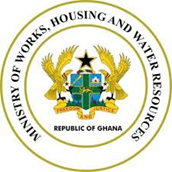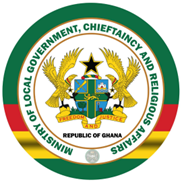 |
 |
Global Theme: "Urban Crisis Response"
Localised Theme: "Resilient Cities, Inclusive and Clean Communities: Responding to Urban Challenges"
Accra, Ghana – Monday 6th October 2025
The Government of Ghana, through the Ministry of Local Government, Chieftaincy and Religious Affairs (MLGCRA), in collaboration with the Ministry of Works, Housing and Water Resources (MWHWR) and the United Nations Human Settlements Programme (UN-Habitat) Country Office, joins the global community in commemorating 2025 World Habitat Day under the theme “Urban Crisis Response” being localised “Resilient Cities, Inclusive and Clean Communities: Responding to Urban Challenges.”
This year’s observance calls for bold, transformative action to address the growing complexities of urban displacement, housing insecurity, and service delivery gaps, particularly in the face of climate change, digital disruption, and rapid urbanisation.
In Ghana, the Ministry of Local Government, Chieftaincy and Religious Affairs is spearheading a series of strategic initiatives that respond directly to these challenges. Key amongst these initiatives are:
Advancing Sustainable Urban Transformation
Earlier this year, the Ministry launched the Sustainable Cities Strategy, with support from the World Bank. This strategy provides a comprehensive framework for building inclusive, climate-resilient, and economically vibrant urban centres across Ghana. It promotes integrated planning, digital innovation, and participatory governance, which are key pillars for responding to urban crises and ensuring long-term resilience.
Complementing this effort, the Ministry has relaunched the National Sanitation Day, reinvigorating a nationwide civic movement to improve environmental health and sanitation in urban communities. This monthly initiative will mobilise citizens, local and traditional authorities and civil society to clean public spaces, reduce flood risks, and foster community ownership of urban environments.
Revision and Finalisation of the National Urban Policy and Slum Upgrading and Prevention Strategy
In line with Ghana’s commitment to inclusive urban development, the Ministry is currently leading the review and finalisation of the National Urban Policy (2026–2035) and the National Slum Upgrading and Prevention Strategy (NSUPS 2025–2034). These reviews aim to align national frameworks with emerging global priorities, including the Sustainable Development Goals and the New Urban Agenda.
The review of the Slum Upgrading Strategy is being undertaken with support from UN-Habitat and the European Union Delegation, whose longstanding partnership with Ghana continues to shape inclusive and participatory approaches to urban development. The revised strategy will address tenure security, infrastructure deficits, and community-led upgrading in informal settlements.
These efforts are further supported by ongoing interventions under Component 3.3 of the Greater Accra Resilient and Integrated Development (GARID) Project, which focuses on slum upgrading, flood mitigation, and improved waste management in vulnerable communities.
Bridging Housing and Infrastructure gap in Ghana
The Ministry of Works, Housing and Water Resources also recognises that, robust infrastructure is the driving force for national development and urban resilience and is driving a comprehensive strategy to bridge this gap. The Ministry with Support from the UN-Habitat and the United Nations Office for Project Services (UNOPS) has reviewed Ghana’s Housing Profile (2024). The revised profile offers actionable recommendations on how Ghana’s challenging housing situation can be improved alongside laying a foundation for the revision of Ghana’s Housing Policy. Curretly the Ministry is collaborating with the UN-Habitat towards the revision of the Policy.
As part of the planned town extension schemes, the Pokuase-Afiaman Affordable Housing project is targeting the delivery of 8,000 housing units for low-to-middle income earners utilising a Public-Private Partnership (PPP) model and sustainable building materials. Additionally, Government in the bid to decentralise housing, plans to deliver 328 EDGE certified housing units across 8 pilot districts through the Greenville District Housing Programme. The Ministry is also prioritising the provision of essential services such as water, sanitation, energy, and connectivity in all new housing developments under this Programme.
Through the National Homeownership Fund (NHF), government continues to provide blended financing and mortgage options as well as rent-to-own schemes in the bid to make homeownership more accessible. Recognising land as a major cost driver, the Ministry’s Land Banks Programme has secured approximately 12,504 acres of land nationwide. Efforts are underway to finalise documentation, protect these lands, and explore repurposing state-owned lands in urban centers for affordable housing. The National Rental Assistance Scheme has already disbursed over GH₵33 million to support nearly 4,000 Ghanaians with rent, demonstrating an effective social safety net. The Security Services Housing Programme has delivered 1,000 new units for personnel, enhancing their welfare.
Towards decarbonisation of the built environment
The United Nations Human Settlements Programme supported the development and launch of a Climate Action Roadmap in Ghana which provides a blueprint to implement a set of actions, including the adoption and use of sustainable local building materials in housing construction, to achieve low-carbon and climate resilient built environment. The roadmap is being operationalised through ongoing capacity building activities for the built environment stakeholders in the use of low-carbon building materials.
Accelerating the achievement of the SDGs in cities (Smart SDG Cities Programme)
Implementation of the Smart SDG Cities Programme is ongoing with technical support from UN-Habitat. In line with the New Urban Agenda, the programme harnesses the transformative potential of cities to accelerate achievement of the Sustainable Development Goals in ten (10) selected cities across eight (8) regions in Ghana. The Programme is strengthening urban governance, advancing integrated planning and promoting people-centered service delivery in both primary and emerging cities.
Imrpoving coastal resilience in Ghanaian communities
The Improved Resilience of Coastal Communities in Côte d’Ivoire and Ghana project, funded by the Adaptation Fund and launched in 2024 is a four-year initiative led by UN-Habitat in collaboration with Ministry of Environment, Sience and Technology and other partners. The project focuses on vulnerable coastal areas in Côte d’Ivoire and in the Ada West, Ada East, and Anloga Districts in Ghana. The initiative priorities inclusive and multi-level spatial planning for climate adaptation, community-driven early warning systems, and the use of nature-based solutions. It also promotes integrated coastal zone management, the restoration of ecosystems like mangroves, and stronger coordination between the two countries at both national and regional levels.
UN-Habitat remains dedicated to partnering with the Government of Ghana and other stakeholders to scale up innovative urban financing, strengthen municipal capacity, and accelerate the localisation of the New Urban Agenda.
As we mark World Habitat Day 2025, we reaffirm our collective commitment to building cities that are resilient, inclusive, and responsive to crisis. We call on all stakeholders, such as government agencies, traditional authorities, civil society, the private sector, and urban residents, to join hands in shaping urban futures that leave no one behind.
Jointly issued by:
Hon. Ahmed Ibrahim (MP)
Minister for Local Government, Chieftaincy and Religious Affairs (MLGCRA)
Hon. Kenneth Gilbert Adjei
Minister for Works, Housing and Water Resources (MWHWR)
Ms. Abena Ntori
Country Manager for the United Nations Human Settlements Programme (UN-Habitat), Ghana
For favor of Publication
All Media Houses
